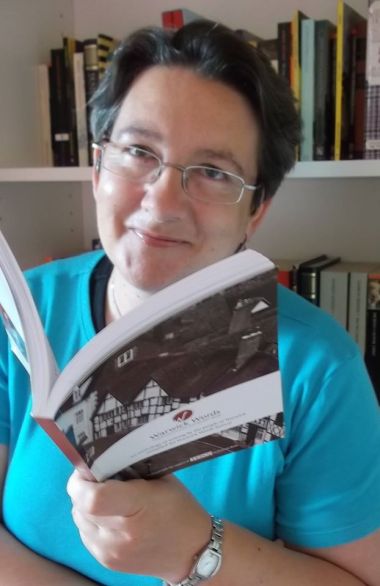Understanding the school bully

September, 1976. The first day of term. I was fourteen and a fortnight into a new foster placement. My own mother was an alcoholic and her live-in boyfriend a petty criminal and a danger.
That September morning, I didn't fancy school. Melodramatically clutching my abdomen and claiming tummy pain, I begged my foster dad to let me stay at home.
My mother always let me bunk off, especially if I trekked to the off-licence for sherry and cigarettes. She was easily persuaded, too absorbed in her own calamities to offer consistency or interest in academic progress. Once I had fetched her supplies, I called on friends also skiving. I'd hang out in the park, avoiding the fights, despair and abuses on offer at home.
School felt like an irrelevance, even though I was bright. My shocking attendance figures told the story.
Also, I didn't like who I'd become at school: one of the 'hard' girls: I'd tease younger children, intimidate less streetwise peers, and frustrate my class teachers with continual disruption – tapping rulers, annoying others, calling out.
I spent many lessons in corridors, peering in from the wrong side of the door.
If my foster parents hadn't been Christians, praying like the clappers for me and leading me to faith when I was seventeen, I may have spent the rest of my life 'on the wrong side'.
You may be surprised, also, to find I'm now an English teacher. You're no more surprised than I am. But I trained in my forties and have taught for 18 years now.
In my memoir of a typical year in my teaching life, 'Miss, What Does Incomprehensible Mean?', a colleague remarks, 'When you feel powerless, being cruel to someone else, someone smaller, can help.'
Bullies rarely feel good about themselves, whatever they claim. I know this because I was one, and because I've taught plenty.
But some are stuck in patterns of aggressive, spiteful behaviour, learned early, from which they can't extricate themselves. They need intervention.
This gives their teachers a problem, however. How do you help disruptive pupils while protecting other children from their disruption?
Back to September, 1976. My new foster father – a teacher himself - was having none of the malingering. 'Come on,' he said, impassively. 'Fetch your school bag. You'll feel better once you're on the bus.'
No berating. No threats. Just a poker-face and a hint of kindness. At the time, I didn't know how hard he was also praying.
My attendance statistics were about to climb.
Later in the term, when I earned after-school detentions for challenging behaviour, he drove several miles to fetch me, but charged me 'taxi fare'. I was incandescent then. Now, I see how – without judging or humiliating – he taught me about consequences.
British teachers are increasingly trained in the effects of trauma, particularly adverse childhood experiences (ACEs). It's even more vital now as vulnerable children – most of whom haven't taken up school places during lock down and who may have suffered further trauma during this period – reappear through the school gates.
Organisations such as www.traumainformedschools.co.uk support educators in this trauma-aware approach, offering seminars and qualifications.
Also, I've recently encountered the work of Lynn Miles, Senior Lecturer in Education at Teesside University. She leads their MA in Education (Trauma-Informed Practice). Lynn herself suffered trauma as a child and this informs her work.
Sir Daniel Moynihan, Chief Executive of The Harris Federation, which oversees 48 London primary and secondary schools, told BBC Radio 4 recently that the federation has just given 800 of its teachers extra training in mental health ready for the end of lockdown. He said, 'Our schools are in very disadvantaged areas of the capital city and many of [the children] have very difficult lives already, and this has worsened the situation.'
Long before the idea of trauma-informed practice became a well-known concept, though, my own 1970s teachers showed admirable forbearance, even though I was less than grateful. They knew, as did my foster parents, that cruelty gets passed on. The bullies are often the bullied, the disruptors the disrupted.
However many times I was found in the girls' toilets, stopping tiny first years from entering, or banging on the doors of their cubicles, staff persevered with me. I was handed sanctions but with compassion. Most realised that adding injury to injury was futile.
The unfazed, dispassionate demeanours of those teachers and of my foster parents influenced my own (improving) personality and, later, my style as a teacher. Colleagues have admired my calm amidst chaos and ability to de-escalate febrile situations, although my trauma-induced difficulties with showing emotion may, ironically, have contributed. Just like my faithful foster parents, though, I also pray like the clappers when faced with impossible situations, and that makes all the difference.
Still, the poker-face is invaluable, helpful for classroom discipline, despite being difficult to maintain in the presence of teenage mischief. Many pupils – even those living tragic lives - are funny, witty and joyful: a rich source of classroom anecdotes for any book about teaching.
The government plans to provide funds for extra academic catch-up tutoring post-Covid. But that's not, I believe, as significant to pupils' wellbeing as calm, consistent, unflappable classroom teachers with a sense of humour and an understanding that childhood trauma can make pupils into people they don't want to be.
Fran Hill is a writer and teacher from Warwickshire whose new book 'Miss, What Does Incomprehensible Mean?' charts a typical year in her life as an English teacher during which it's not only the pupils who misbehave. It is available in paperback and e-book from SPCK Publishing, Amazon and many other bookstores. Find out more about Fran at www.franhill.co.uk











